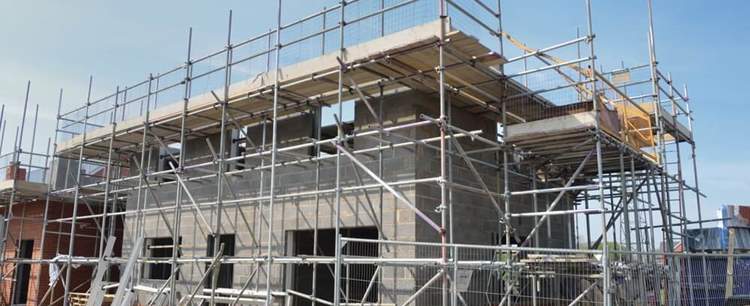Recent UK property news reveals some fundamental movements in the nature of the property market as a current generation of owners look upon their homes in an entrepreneurial fashion and more prospective buyers turn to specialist mortgage lenders.
In the private rented sector, landlords continue to count the cost of improving energy-efficiency ratings – and studies indicate the levels of efficiency achieved in new build housing – while calls are heard for the formulation of a Rental Housing Strategy.
Developer Generation: are homeowners becoming more entrepreneurial?
Property specialists Moveable have uncovered what they believe to be a significant shift in the way homebuyers among millennials and the so-called generation Z regard their property.
Four in every ten buyers from these age groups have bought property to develop rather than to live in while a quarter of them look on homes they have bought as income streams and not just places of residence.
The shift also reflects changes that can be detected in figures released by the authoritative English Housing Survey – last published on the 9th of December 2021. This revealed that more than a third (35%) of second homeowners regarded the property as a source of income and long-term investment (rather than as a holiday home, for instance).
UK buyers of second homes – including buy to let landlords and owners of overseas property – have currently invested around a trillion pounds in those properties, up from £610 billion 20 years ago.
The financial returns from property ownership, together with the changes in choices about lifestyle, housing, and careers that have been prompted by the pandemic, all contribute to the shift towards a younger generation that regards property as a reliable source of income and not just as a place to live.
Over half of UK homebuyers would consider specialist mortgage lenders
Research by a mortgage broker has revealed the changing habits of prospective mortgage borrowers in the UK. Their survey of nearly 700 customers revealed that:
- more than half (54%) would consider consulting a specialist mortgage lender – even one whose name they might not have encountered before;
- 62% believed that a broker may be able to find mortgage products not available to members of the general public;
- 60% believed that a broker would make the process of applying for a mortgage easier;
- 45% complained that their current mortgage lender did not communicate well; and
- 32% had used a broker to secure their current mortgage.
The reported use of a mortgage broker – by almost a third of respondents – confirmed that this is the most common path to success in securing a mortgage. It was followed by 24% who had consulted their (existing) bank and 21% who applied for a new product from the lender from whom they had already borrowed.
EPC changes to hit landlords – spend thousands or lose thousands?
With a further tightening of regulations on the energy efficiency of let property already on the horizon, landlords are being warned about the losses they could face if they fail to meet the new standards in time.
In a story on the 13th of April, Landlord Today reminded readers that new EPC standards for let property will be introduced in 2025. It followed that up with a warning that landlords who failed to make the necessary energy-efficiency improvements in time would not be allowed to let their properties and stood to lose an estimated average of £9,500 a year as a result.
Landlord Today revealed that almost a third of all landlords (30%) had still not made any energy-efficiency improvements although most of them claimed that they will start such works within the next 14 months.
One in ten landlords say they do not intend to start any such improvements until three- or four-years’ time – when the 2025 deadline will be looming perilously close.
Landlords back MPs call for Rental Housing Strategy
In a press release on the 13th of April, the National Residential Landlords Association (NRLA) lent its voice in support of calls for a Rental Housing Strategy following the publication by the House of Commons Public Accounts Committee of its report on the Regulation of Private Renting.
In its response, the NRLA complains that attempts to date to reform the sector of the housing market have been piecemeal and founded on insufficient information to allow a true understanding of the underlying situation and the effectiveness of any remedies.
Instead, a comprehensive strategy is required to guide any reform of the rental housing market at a time when demand for such accommodation is soaring.
New builds: The current scale of savings on energy bills
New-build housing is significantly more energy-efficient than other homes – to the extent that up to £435 a year can be saved on energy bills in a newly built home, according to the Buy Association on the 12th of April.
According to the article, newly built housing tends to have significantly higher EPC ratings – for those new dwellings recorded in the 12 months to September 2021, for instance, around 84% of homes were rated EPC A or B while only 3% of the existing housing stock met those standards.
In new homes, the biggest savings come from expenditure on heating bills. An older property costs around an average of £666 a year to heat; new builds, on the other hand, can be heated for an average of just £271 a year – a saving of some £395 or 59% cheaper.



